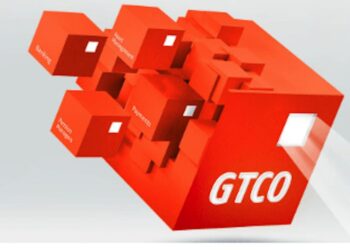Segun Agbaje, the CEO of Guaranty Trust Bank (GTB), one of the leading banks in Nigeria, announced recently that the institution was aiming at developing fintech products and building out its payments and fintech arms.
GTBank operates and aggressively promotes different digital products like digital lending (Quick Credit), payments (GTPay) etc. arguably positioning itself as the most advanced traditional institution competing against Nigerian fintechs.
QuickCredit has gained traction over time and is one product that is positioned as a competitor with other fintechs. However, Agbaje said the focus is more on its payment business (paywall), seeing it has been estimated that the payment market could grow between $20 billion and $40 billion in the next few years with 30% of banking income at risk. GTB will also scale up its super app, Habari.
All in all, GTBank is making a strong move into the Nigerian Fintech space and it appears successful. The question is, will this be the foremost step to a trend where traditional banks could overtake fintechs? Some indications to consider:
[READ MORE: Smartphones that track virus spread: This could really make a difference)
- GTBank has always been considered a leading traditional player. An instance was the popularity it garnered with USSD codes (737) that resulted in other banks following suit.
- Traditional banks will fight to stay relevant and so have been deliberate in unleashing the potential of fintech offerings, mostly through partnerships.
- These banks are aware of changing times, so innovation has become the order of the day. However, a move like this could increase exposure to unintended risks.
- This could alter the dynamics of the fintech space as most traditional players have the revenue to move with speed and become real contenders.
- A bank that can successfully position itself as a fintech will win over customers with ease, as customers will always be drawn to where they can get the most value offerings.
- Are traditional banks and fintechs held to the same regulatory standards? Failing to comply with regulators like CBN puts these banks at risk of paying some hefty fees and legal penalties.
WATCH: Nairametrics Tech Roundup on remote work, branchless banking and other trending developments
It is important for banks to foster a culture of compliance and also invest in regulatory technology, so they are not caught unprepared. Fact is, it is much easier for banks to evolve and produce fintech products than it is for fintechs to become banks in spite of the growing acceptance of technology solutions. The vast majority of the Nigerian population still prefer to deal with brick and mortar banks.
Article written by TechRound up





















TWO SUGGESTIONS HERE.
1. GT BANK SHOULD UNDULY GET SEDUCED BY FINTECH BUT MAY WANT TO LOOK AT THE WHOLE ‘TECH’ SCENE, FOR INSTANCE, FINTECH ASIDE, BOTH INSURTECH AND AGRICTECH LOOK VERY PROMISING.
2. IN SOME INSTANCES, IT SHOULD ALSO CONSIDER COLLABORATION OVER AN OUTRIGHT COMPETITIVE STRATEGY, DEPENDING ON THE CIRCUMSTANCES.
WE SAW THE EXAMPLE OF VISA, WHICH RATHER THAN START FROM SCRATCH IN TRYING TO HAVE A MEANINGFUL MARKET SHARE PREFERRED TO DO SO THROUGH EQUITY PARTICIPATION IN INTERSWITCH TECHNOLOGY.